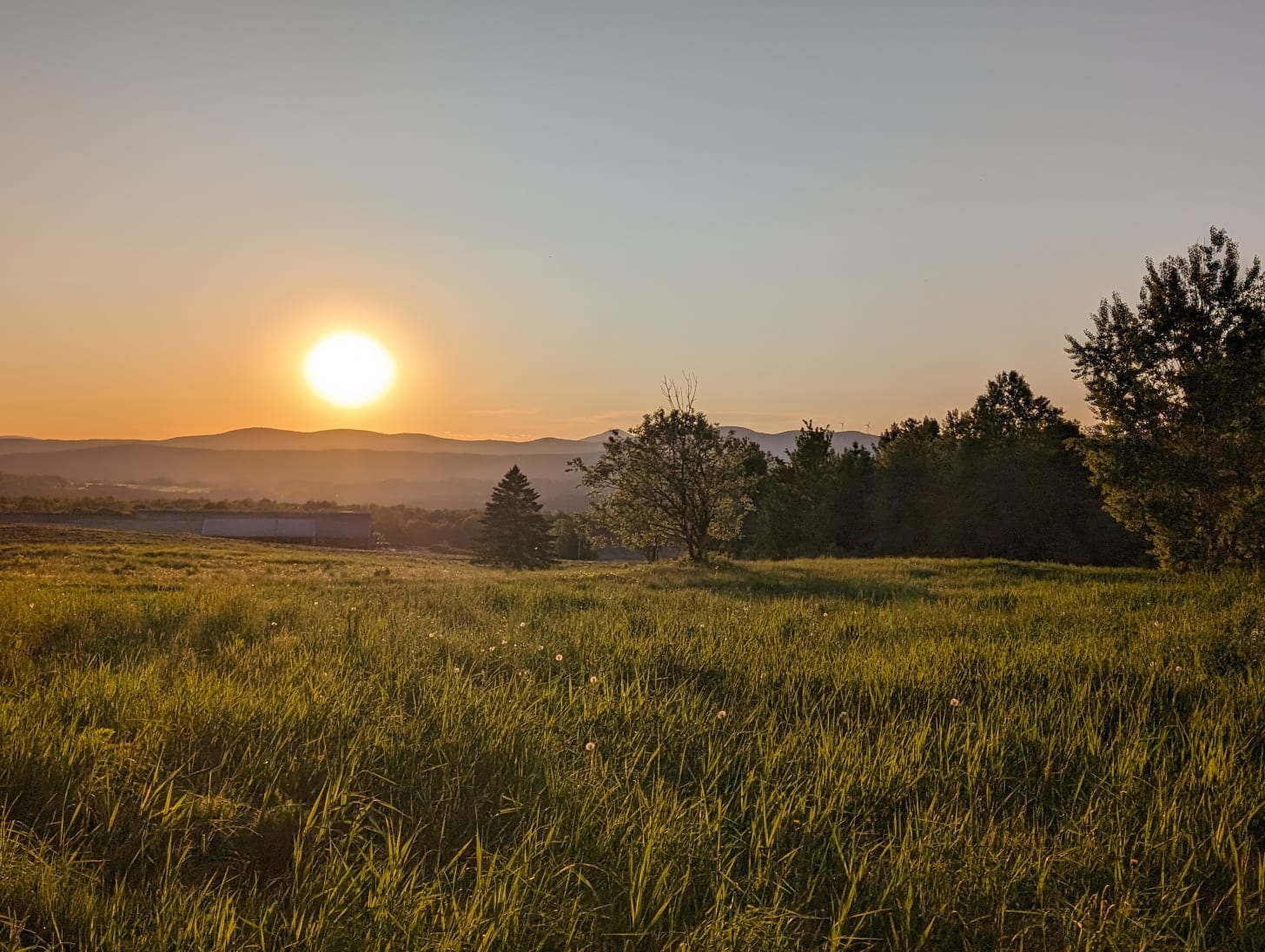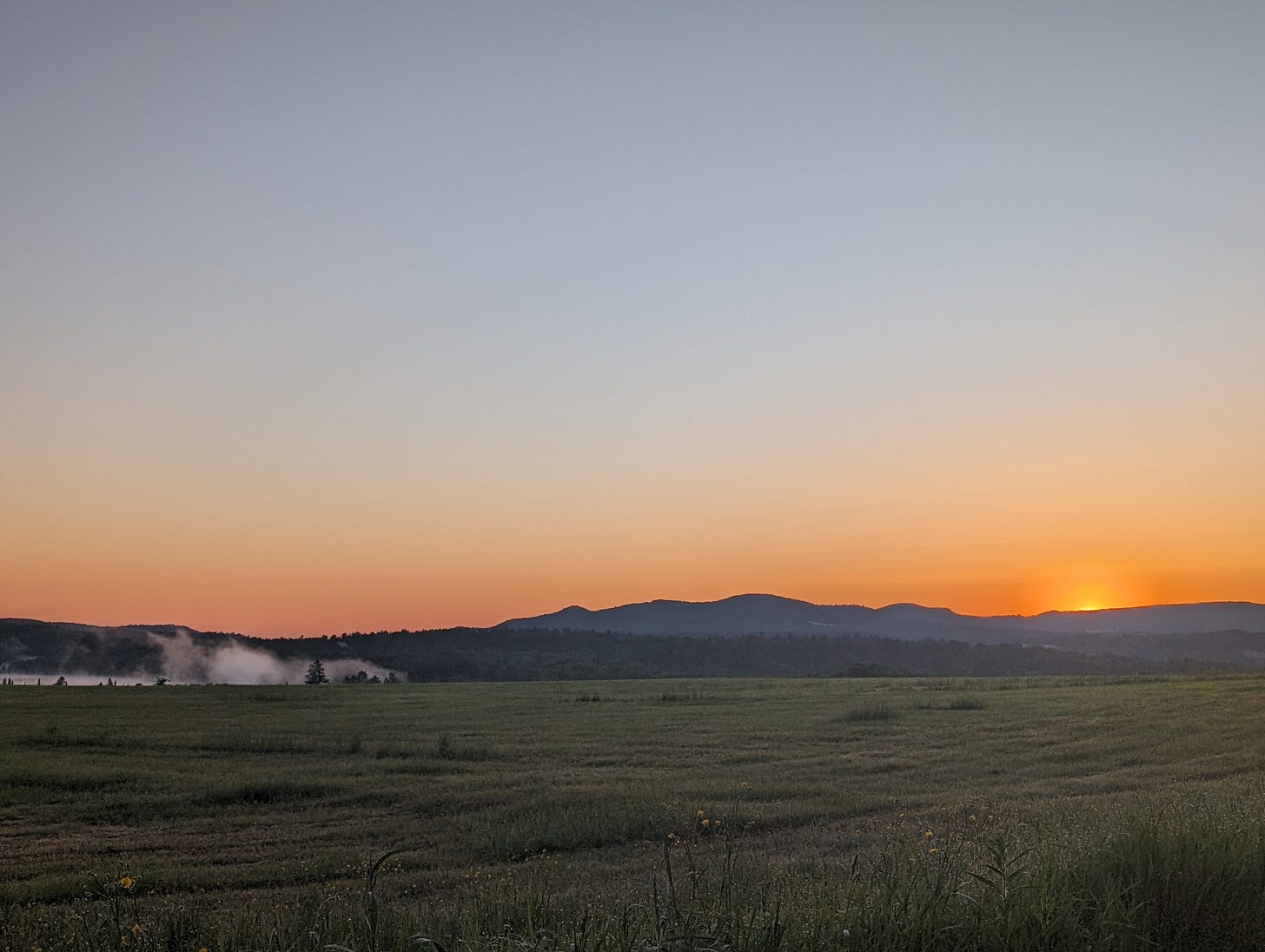The Rule of Excuses
Samuel, religious leaders, and Jesus
Now the boy Samuel was ministering to the Lord under Eli. The word of the Lord was rare in those days; visions were not widespread.
At that time Eli, whose eyesight had begun to grow dim so that he could not see, was lying down in his room; the lamp of God had not yet gone out, and Samuel was lying down in the temple of the Lord, where the ark of God was. Then the Lord called, “Samuel! Samuel!” and he said, “Here I am!” and ran to Eli and said, “Here I am, for you called me.” But he said, “I did not call; lie down again.” So he went and lay down. The Lord called again, “Samuel!” Samuel got up and went to Eli and said, “Here I am, for you called me.” But he said, “I did not call, my son; lie down again.” Now Samuel did not yet know the Lord, and the word of the Lord had not yet been revealed to him. The Lord called Samuel again, a third time. And he got up and went to Eli and said, “Here I am, for you called me.” Then Eli perceived that the Lord was calling the boy. Therefore Eli said to Samuel, “Go, lie down, and if he calls you, you shall say, ‘Speak, Lord, for your servant is listening.’ ” So Samuel went and lay down in his place.
Now the Lord came and stood there, calling as before, “Samuel! Samuel!” And Samuel said, “Speak, for your servant is listening.”
Then the Lord said to Samuel, “See, I am about to do something in Israel that will make both ears of anyone who hears of it tingle. On that day I will fulfill against Eli all that I have spoken concerning his house, from beginning to end. For I have told him that I am about to punish his house forever for the iniquity that he knew, because his sons were blaspheming God, and he did not restrain them.”
As Samuel grew up, the Lord was with him and let none of his words fall to the ground.
1 Samuel 3:1-14, 19
Before, during, and after any time we touch on evil, I want to focus on the goodness of God. The goodness of God is always calling to us. There is no darkness humanity can throw at God that God cannot shine into, and through, and find us in. That doesn’t make everything okay. It just means there is no darkness that God’s light cannot enter.
My Other Grandma
On Mother’s Day, I talked about my living grandma, but I didn’t talk about my other grandma, Martha, who passed away in the 90s. Martha was a tough cookie. My military officer grandfather took strict orders from her. She taught my social worker aunt how to embody the best kind of “tough love.” According to my aunt, as part of her Alabama-born wisdom, she would sometimes say, “If it’s important to you, you’ll find a way; if it’s not, you’ll find an excuse.”
I have been thinking about that with our readings today, starting with Samuel.
Samuel (and Eli)
We have this classic story in 1 Samuel 3 of the young Samuel being called by God. We often forget the background of this story in chapters one and two, where Samuel is born in the middle of some dark religious corruption.1 And his mentor, Eli, is the one who permitted it. Eli’s sons are priests, and they’re taking sacrifices meant for God for themselves, and they’re committing sexual abuse. While Eli tells them it’s bad, they don’t care. And ultimately, Eli doesn’t do anything about it. As God tells Samuel, Eli does not do enough to intervene in evil when it was in his power. He doesn’t hold his sons truly accountable. Because, “If it’s important, you’ll find a way, if it’s not, you’ll find an excuse.”
God tells both Eli and Samuel that he and his whole family will be held accountable thanks to these priest’s unrepentant acts. For God holds people accountable even when we don’t. But that is not all, God says. God says he is going to do a new thing, and there’s no darkness he can’t deal with. So he calls Samuel.
The Rules of Engagement and The Rule of Excuses
A big part of our sinful nature as people is that rather than discerning what is truly right, or just, or fair, we often fall back on the rules: what do I have to do? The military contains so-called “rules of engagement,” and while there are many good reasons for these rules that constrain evil—code of conduct—sometimes these rules enable evil in any organization.
So often, we as humans do things out of the incentives of obligation. “How would I get in trouble if I do or don’t do this?” So while this ensures some things get done that wouldn’t otherwise, it also is the key to so much institutional sin. So often, if we don’t have to do something uncomfortable, we will be ruled by the excuse which is comfortable.
Our rules as a church can sometimes be a strength, our source of discipline, a recollection of hard-earned wisdom that leads to regulating our worst instincts, but just as often an Achilles heel. Just like the religious leaders around Jesus, the church mistakes the call of religion as the call of God all the time.
Jesus and the Sabbath
One Sabbath Jesus was going through the grain fields, and as they made their way his disciples began to pluck heads of grain. The Pharisees said to him, “Look, why are they doing what is not lawful on the Sabbath?” And he said to them, “Have you never read what David did when he and his companions were hungry and in need of food, how he entered the house of God when Abiathar was high priest and ate the bread of the Presence, which it is not lawful for any but the priests to eat, and he gave some to his companions?” Then he said to them, “The Sabbath was made for humankind and not humankind for the Sabbath, so the Son of Man is lord even of the Sabbath.”
Again he entered the synagogue, and a man was there who had a withered hand. They were watching him to see whether he would cure him on the Sabbath, so that they might accuse him. And he said to the man who had the withered hand, “Come forward.” Then he said to them, “Is it lawful to do good or to do harm on the Sabbath, to save life or to kill?” But they were silent. He looked around at them with anger; he was grieved at their hardness of heart and said to the man, “Stretch out your hand.” He stretched it out, and his hand was restored. The Pharisees went out and immediately conspired with the Herodians against him, how to destroy him.
Mark 2:23-3:6
So now let’s pivot to our story of Jesus on the Sabbath, which he tells us is made for us. He’s not denying the importance of the Sabbath, he’s just getting to the heart of it: the Sabbath is a gift.
Take another gift that we sometimes slip into mistaking for obligation: prayer. Is God gonna be mad that we weren’t spending time in prayer because we were too busy being with a lonely friend? No, because prayer is a gift for us, and God’s favorite gifts to us are ones we give to others. It is just like how Christ’s call to carry our cross is not even “our” cross; Jesus was carrying the cross for us, and so the gift of carrying our cross like him is carrying a burden that someone else doesn’t have to. This turns a gift for one into a gift for two. This is Christ’s Sabbath gift.
Jesus is trying to teach us that to honor our religious gifts to their fullest extent is to give them away. When we are given power, we must be willing to give it back. This includes not only healing on the Sabbath (or anytime), but stopping harm by intervening in evil. It’s what Eli didn’t do. But it is what Jesus would do, such as with the woman being stoned and so many other situations.
We are called to not only help people when the rules say otherwise, but to prevent evil when the rules would permit us to allow that evil to continue. Jesus is warning against both instances of making your real authority the institution and not God. That is how following the “rules of engagement” turns our soul over under the Rule of Excuses.
But God’s goodness works through everything. And when we find excuses, Jesus finds a way.
Back to My Grandma
As much as my grandma had that tough love thing going, it wasn’t just “tough.” It was real love. Her daughter, my social worker aunt, would deal with all kinds of people. If you’re a big city social worker, you have to get used to people lying to your face and trying to manipulate you. You can’t simply live and let live; many times, you are looking out for a child's wellbeing. Meanwhile, you’re also having to deal with the institutional evils that sometimes come up in government or non-profit work. Anyone can get very frustrated and jaded by dealing with people’s sin-side all the time.
I think of a guy in Cambridge, Mass., who towed my car once. I was very much in the wrong and had a good enough sense of humor about it after I walked several miles of annoyance off. After all, all is fair in love and parking war. By the time I arrived, I had somehow found my usually-reserved-around-strangers self morphing horrifically into my grandfather and father’s jovial extroversion. There is a cosmic humor to me being pitted against some random guy who owns a tiny piece of real estate outside of Boston whose sole income comes from people angrily retrieving their vehicles.
As I got to talking to him, he told me about all kinds of stuff people would do, including pulling a gun. It makes me wonder if tow truck drivers are our modern-day version of tax collectors from the Bible, reviled by the world, treated as an epithet as we hiss, “Tow truck driver!” Jesus would have loved tow truck drivers just as much as tax collectors. And maybe he didn’t mind them because they saw people’s sin almost as much as he did.
But whenever we see people’s sin up close, my grandma would also say that we have to remember that person was once a baby. That person who is trying to lie, manipulate, and harm other people is a child of God, too. So as we’re trying to follow Jesus in intervening in evil, we can remember this is how Jesus ultimately sees all of us when he comes to intervene in our evil better than we ever could.
This is the true goodness of God reigning. As he did with Samuel, God is calling us in the midst of whatever stuff we might be in. You yourself might be in the middle of some really hard stuff. How is God calling you to goodness?
When you find yourself in a world that too often forgets what wrong is, that too often is ruled by the excuses of the powerful so that the powerful stay comfortable, how is God calling you not to honor those excuses? How is God calling you to intervene? How is God calling you to “honor your Sabbath” by honoring your life as a gift that you give away? How can you make the gift of your one life into a gift for more?
H/t to Aaron and Melissa Burt’s At Home With the Lectionary for this discussion that helped inspire this piece. A great podcast.






